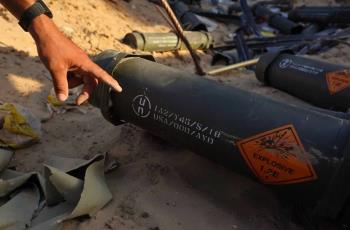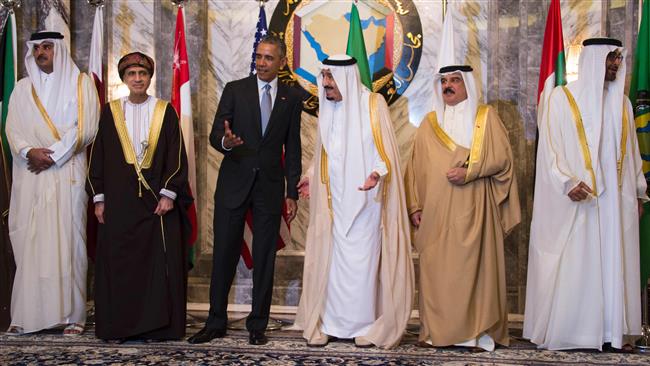Alwaght- A meeting between US President Barack Obama and Persian Gulf monarchs in Saudi Arabia’s capital Riyadh was dominated by anti-Iran rhetoric.
Speaking on Thursday during a Persian Gulf Cooperation Council, PGCC, summit hosted by the Saudi regime, Obama said that Washington continues to have "serious concerns" about Iran's behavior even after the watershed nuclear deal last year. He claimed that while the nuclear agreement signed on July 14 had helped "cut off every single one of Iran's pathways to a nuclear weapon," illegal Iranian arms shipments, ballistic missile tests, and "destabilizing acts" were a continued worry for the U.S. and its allies.
He said that how to deal with Iran was still proving to be the "biggest area where there's been tactical differences" with the PGCC.
"What I've said to them is we have to have a dual track," he told reporters, referring to his discussions with the (Persian) Gulf leaders. "We have to be effective in our defenses and hold Iran to account where it is acting in ways that are contrary to international rules and norms, but we also have to have the capacity to enter into a dialogue."
In his Iranophobic remarks, Obama further stated that mistrust has grown "in part because of Iranian provocations" but added that dialogue did not equate to the US giving Iran an easy ride. "Even when the Soviet Union was threatening the destruction of the United States there was still dialogue so that we could find ways to reduce tensions," he said. "Even as Iran was calling us the Great Satan we were able to get a deal done that got rid of their nuclear stockpiles and that makes us safer. And that's not a sign of weakness, that's a sign of strength."
Obama was speaking in Saudi Arabia where he was conducting talks with the Persian Gulf Cooperation Council rulers — which also includes Oman, the United Arab Emirates, Qatar, Bahrain and Kuwait — to coordinate better on conflicts across the region.
The meeting also came against the backdrop of a growing fight in Washington over whether to publicly release documents that may implicate Riyadh in the planning of the September 11, 2001, attacks in New York.
Riyadh has threatened to sell off $750 billion in US assets if Congress passes a bill that would allow American citizens to sue the Saudi government for any role it may have had in the attacks that killed 3,000 people.



























